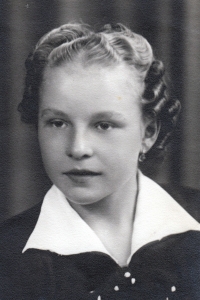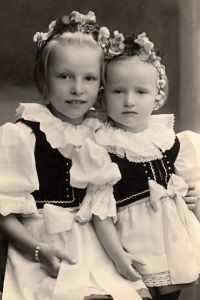I gazed admiringly at the little silver stars in the sky, which suddenly started dropping bombs

Download image
Alena Ševčíková, née Tylečková, was born in Ostrava on 13 May 1935. She grew up in Stará Ves nad Ondřejnicí. Her father was a builder and drafter. In August 1944 she witnessed the American bombing of Ostrava. The bombers’ main targets were industrial and military facilities in the Nazi-occupied city. For unknown reasons, the pilots also dropped some sixty bombs on Stará Ves nad Ondřejnicí. Five people died. Alena Ševčíková also witnessed the passing of the battlefront in April 1945. Stará Ves was a battleground for several days. Their family’s house was used by the staffs of both the German and the Soviet army. After the war she studied to be a teacher at “national” schools. She taught at several primary schools. In the early 1970s she was appointed headmistress of the school in Proskovice. She married and had two sons. She and her family lived in a house built by her father.

